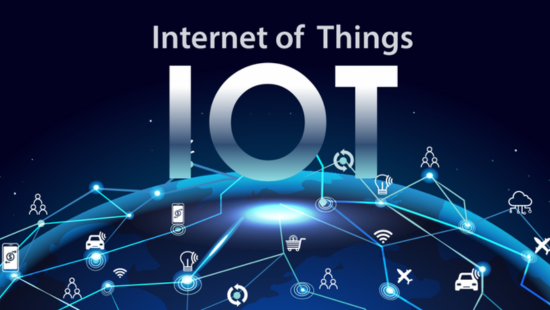The Internet of Things (IoT) is one of the most transformative technological developments of the modern era. By connecting everyday objects to the internet, IoT is enabling devices to communicate with each other and perform tasks without human intervention. This interconnected ecosystem is revolutionizing industries, businesses, and daily life. In this article, we explore how IoT works, its applications, and its significant impact on technology.
What is the Internet of Things (IoT)?
The Internet of Things refers to a network of physical objects—such as devices, vehicles, appliances, and even wearable technology—embedded with sensors, software, and other technologies to collect and exchange data over the internet. These devices can communicate and share data in real time, providing valuable insights and enabling automation.
IoT Applications in Everyday Life
IoT technology is already integrated into many aspects of our daily lives. Smart homes are a prime example, where devices like smart thermostats, security cameras, lighting systems, and voice assistants can be controlled remotely or programmed to operate autonomously. IoT also extends to wearables like smartwatches and fitness trackers, which monitor vital signs and share health data with healthcare providers in real-time.
IoT in Healthcare
The healthcare industry is experiencing a significant transformation due to IoT. Remote patient monitoring devices, such as smart glucose meters, heart rate monitors, and wearable ECGs, allow healthcare professionals to track patient conditions outside of clinical settings. IoT is enabling more personalized care, reducing hospital readmissions, and improving health outcomes by providing continuous data for monitoring and analysis.
IoT in Manufacturing

Manufacturers are utilizing IoT to streamline operations and improve efficiency. Smart factories equipped with IoT devices can monitor machinery, track inventory, and analyze production data in real-time. This helps businesses to minimize downtime, reduce waste, and improve supply chain management. IoT-driven predictive maintenance also allows manufacturers to identify potential equipment failures before they occur, reducing maintenance costs and downtime.
IoT in Agriculture
In agriculture, IoT is helping farmers increase productivity and sustainability. Smart irrigation systems, for example, can use real-time weather data and soil moisture sensors to optimize water usage, conserving resources and improving crop yields. IoT devices can also monitor livestock health, track crop conditions, and improve farm management by collecting data on various environmental factors.
IoT in Transportation
The transportation industry is also benefiting from IoT technology. Smart vehicles can communicate with other vehicles and infrastructure to improve road safety and efficiency. IoT is enabling autonomous vehicles to collect and process data in real time, making decisions that enhance driving safety and efficiency. Additionally, IoT is used for fleet management, helping companies track the location, fuel consumption, and condition of vehicles.
Smart Cities and IoT
The rise of smart cities is one of the most promising applications of IoT. By integrating IoT technology into urban infrastructure, cities can optimize traffic management, waste management, energy usage, and public services. For instance, smart traffic lights can adjust in real time to minimize congestion, while smart meters can help monitor and control energy consumption. IoT-powered solutions are making cities more efficient, sustainable, and livable for residents.
IoT Security and Privacy Concerns
While IoT offers many benefits, it also raises concerns regarding security and privacy. The more devices that are connected to the internet, the greater the risk of cyberattacks and data breaches. It’s crucial for IoT manufacturers to implement robust encryption and data protection measures to safeguard user privacy and prevent unauthorized access. Additionally, the growing use of IoT in critical sectors such as healthcare and transportation necessitates strong security protocols to ensure the integrity and safety of these systems.
The Future of IoT
As IoT technology continues to evolve, its applications will only expand. The introduction of 5G networks will accelerate the growth of IoT by providing faster data transfer speeds and lower latency, enabling real-time communication between devices. Artificial intelligence (AI) and machine learning will also play a significant role in analyzing the vast amounts of data generated by IoT devices, leading to smarter decision-making and automation.
Read More : http://How Technology is Revolutionizing Healthcare: Innovations and Insights
Conclusion
The Internet of Things (IoT) is reshaping industries and transforming the way we live and work. From healthcare and manufacturing to transportation and agriculture, IoT is improving efficiency, productivity, and sustainability. However, as we continue to integrate IoT into everyday life, it’s essential to address security and privacy challenges to fully realize its potential. The future of IoT is bright, and its impact on technology will continue to grow in the years to come.

